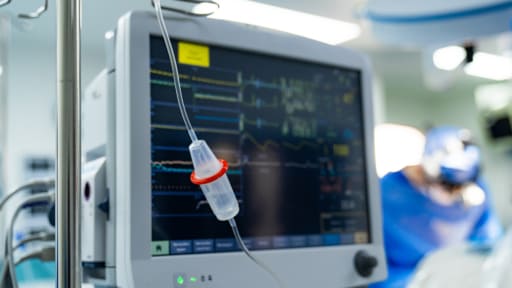Logistics Expertise: Healthcare Logistics

Time is the foundation of modern logistics. On-time deliveries determine the rhythm of the globalized economy’s functioning. Any delay can pose a serious risk of downtime in the entire production and distribution process of goods.
However, it would not be an exaggeration to say that there is one industry where a smoothly operating supply chain is particularly crucial: the healthcare industry.
People’s health and even lives often depend on whether the shipments arrive on time and are undamaged.
Transport for the Healthcare Industry: What is it?
Transport for the healthcare industry is a broad concept encompassing all cargo transportation services from the place of origin to the destination. Although the term “transport for the healthcare industry”may primarily bring to mind the movement of medicines and other pharmaceutical products, it actually involves many more various types of cargo.
As Ms Lisa Tuffin, EU Business Development Manager at Coyote Logistics, notes, transport for healthcare companies includes products such as gowns, gloves, bedpans or needles, as well as equipment such as electrical devices used in the detection and treatment of multiple illnesses. Coyote Logistics handles this type of cargo for clients in this industry.
Transport for the Healthcare Industry: How is it Done?
Let’s hear from Ms Tuffin again: “Depending on the type of cargo, the carrier and driver may need to be ADR compliant, carry certain certification and fully understand the handling requirements of the goods being transported.”
Additionally, trucks used to transport shipments from the healthcare industry must be properly locked and secured. It goes without saying that the deadlines for cargo collection and delivery are strictly adhered to. For example, when it comes to an urgent delivery of blood platelets, transport by van will be necessary to ensure the cargo arrives at its destination the next day, adds Lisa Tuffin.
Of course, some loads will require transport under appropriate conditions, primarily under controlled temperature. In the case of medicine transport, it is also essential that carriers and logistics partners have a GDP (Good Distribution Practice) certificate. This certificate confirms that throughout the entire process of transporting medicines, the products remained unchanged and were not falsified.
Transport for the Healthcare Industry: What to Pay Attention to When Choosing a Reliable Logistics Partner?
As Lisa Tuffin points out, shippers from the medical industry should choose a logistics partner that has all the required certificates (e.g., for the transport of medicines). The right partner for a company in this industry should also have the knowledge and experience to ensure timely and uninterrupted deliveries. They should also have the equipment to meet all the customer’s transport needs (temperature-controlled vehicles or the ability to organize an urgent next-day delivery). It is also crucial that the logistics partner provides 24/7 tracking of the cargo status, especially for high-value and high-risk cargo (complicated diagnostic equipment), and offers additional insurance for such cargo.
If you operate in the healthcare industry and are looking for an experienced partner who will ensure timely transportation of your cargo on international European routes, on domestic routes in the UK, and across the Channel from the UK to the European Union, feel free to contact Coyote Logistics. We’re here to help.